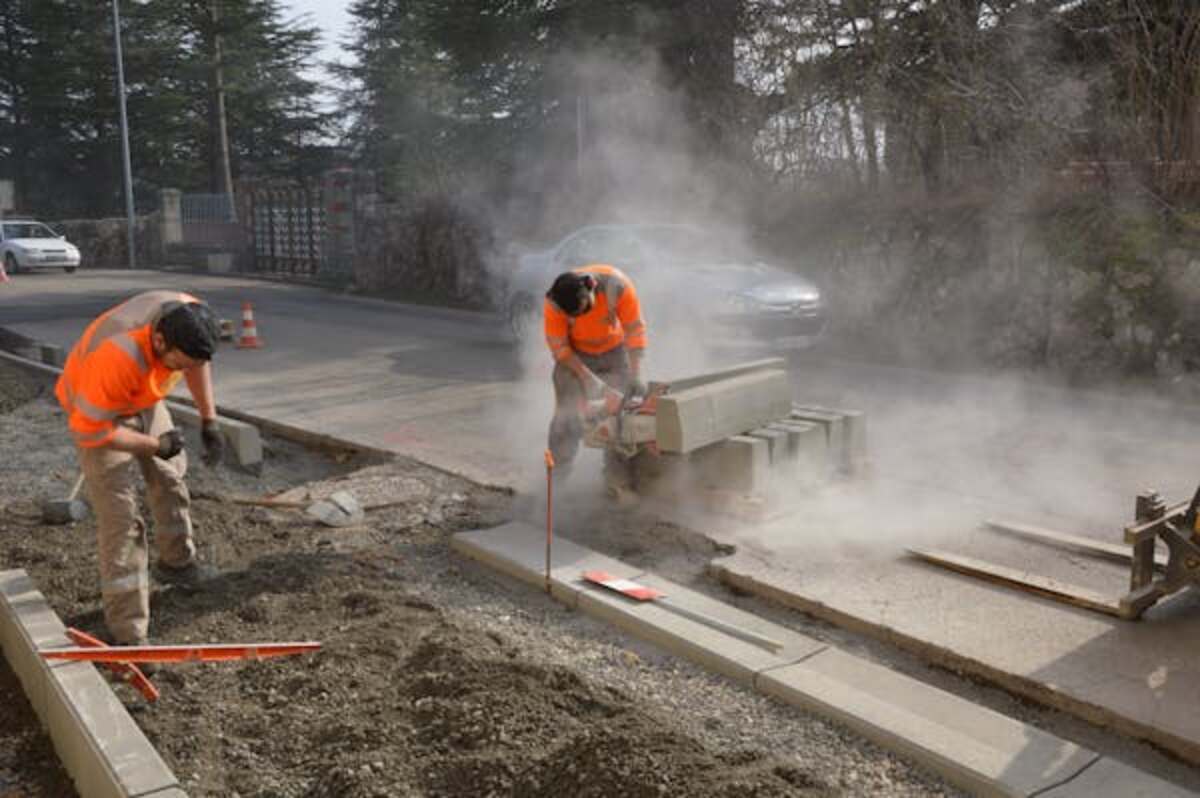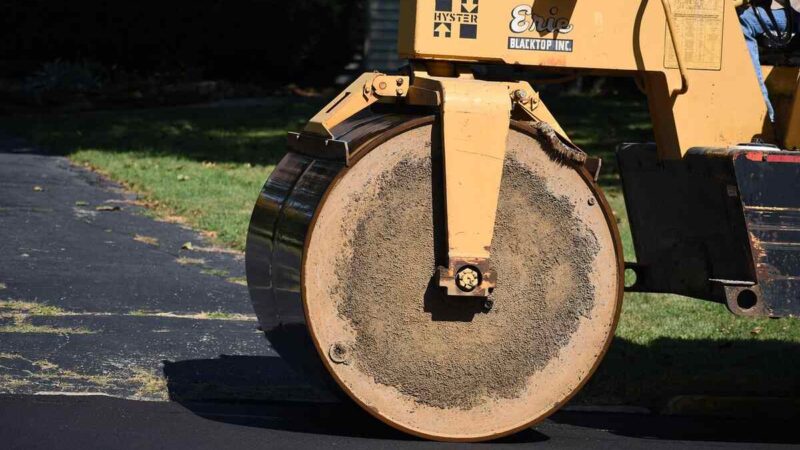Choosing the Right Olathe Asphalt Contractor

When it comes to paving, whether you’re dealing with a driveway, parking lot, or any other surface, choosing the right contractor is crucial. Selecting an Olathe asphalt contractor isn’t just about finding someone to lay down some tar; it’s about ensuring quality, durability, and value for your investment. So, how do you go about picking the right one? Let’s break it down. Learn the best info about Olathe Asphalt Paving.
Understand What You Need
First, get clear on what your project requires. Are you paving a residential driveway, or is it a large-scale commercial project? Understanding the scope will help you determine the kind of expertise and equipment needed. Residential projects might be simpler, but they still require attention to detail to ensure longevity and aesthetics.
Define Your Project Scope
To start, outline the size and complexity of your project. A residential driveway might seem straightforward, but factors such as existing landscaping, the slope of the ground, and drainage needs can complicate things. Commercial projects, on the other hand, often involve additional considerations like traffic flow and accessibility requirements. By clearly defining the scope, you set a foundation for your expectations and the contractor’s responsibilities.
Identify Specific Requirements
Beyond size and complexity, consider any unique requirements of your project. For instance, will the paved area need to support heavy vehicles? This would necessitate a thicker asphalt layer. Do you want a particular aesthetic finish or color? Some contractors specialize in decorative asphalt finishes. Identifying these specifics early on helps streamline the selection process by focusing on contractors who can meet these needs.
Consider Future Maintenance
Paving is not a one-time task; it requires ongoing maintenance to stay in good condition. Consider the type of maintenance your project will need, like regular sealing or crack repairs. Understanding these future commitments can influence your choice of materials and contractors, as some may offer maintenance plans or warranties that add long-term value to your investment.
Know the Basics
Before diving into finding an asphalt contractor, familiarize yourself with some basics about asphalt paving. What materials are best suited for your climate? How thick should the asphalt layer be? What kind of maintenance will it require? Having this foundational knowledge will empower you to make informed decisions and engage in meaningful conversations with potential contractors.
Understand Asphalt Materials
Different climates require different asphalt compositions. For instance, areas with severe winters might benefit from a more flexible mix that can withstand freeze-thaw cycles. Conversely, regions with hot climates need asphalt that can resist softening and deformation. Familiarizing yourself with these options ensures you choose a material that will perform well over time.
Learn About Layer Thickness
The thickness of the asphalt layer plays a critical role in its durability and performance. For residential driveways, a standard thickness might suffice, but commercial projects often require thicker layers to support heavier loads. Understanding these standards helps you evaluate contractor proposals and avoid unnecessary costs or inadequate paving.
Maintenance Essentials
Regular maintenance extends the life of your asphalt surface. Knowing the basics about sealing, crack filling, and drainage management can help you plan for these future needs. Additionally, discussing maintenance with potential contractors can reveal their commitment to quality and customer service, as the best contractors will offer guidance and support beyond the initial paving job.
Research and Recommendations
Selecting the right contractor involves thorough research and gathering recommendations. Both word-of-mouth referrals and online resources can guide your decision-making process, offering insights into the quality and reliability of potential contractors.
Start With Recommendations
Word of mouth is powerful. Ask friends, family, or colleagues if they’ve worked with any asphalt paving contractors in Olathe, KS, and what their experiences were like. A firsthand account can provide invaluable insights into a contractor’s professionalism, quality of work, and reliability.
Gather Personal Testimonials
Start by reaching out to your network for personal testimonials. People you trust can offer candid feedback about their experiences, including both positive aspects and potential red flags. This firsthand information is often more reliable than anonymous online reviews and can help you create a shortlist of reputable contractors.
Assess the Contractor’s Reputation
The reputation of a contractor in the community speaks volumes. Beyond individual recommendations, consider the contractor’s standing within the local business community or industry associations. A well-regarded contractor is likely to prioritize quality and customer satisfaction, making them a safer choice for your project.
Understand Their Specialty
Recommendations can also shed light on a contractor’s specialty. Some contractors excel in residential projects, while others might have more experience with commercial or industrial paving. Matching a contractor’s expertise to your project’s needs ensures that they have the necessary skills and experience to deliver the best results.
Go Online
In today’s digital age, a wealth of information is just a click away. Search for “Olathe asphalt paving” or “asphalt paving contractors Olathe KS” online. Check out reviews on platforms like Yelp, Google, and the Better Business Bureau. Pay attention to both the number of reviews and the overall rating. A contractor with hundreds of positive reviews is typically a safer bet than one with just a handful.
Evaluate Online Reviews
Online reviews can provide a broad perspective on a contractor’s performance across multiple projects. Look for patterns in the feedback, such as consistent praise for quality work or recurring complaints about delays. This analysis helps you identify potential strengths and weaknesses of a contractor before making contact.
Explore Contractor Websites
A contractor’s website can be a rich source of information. Look for details about their services, project portfolios, and client testimonials. A well-maintained website indicates professionalism and a commitment to transparency, allowing you to assess whether their offerings align with your project needs.
Use Social Media Insights
Social media platforms can offer additional insights into a contractor’s reputation and customer interactions. Look for client comments, photos of completed projects, and how the contractor engages with their audience. Active and positive engagement on social media often indicates a contractor who values communication and customer satisfaction.
Credentials and Experience
The credentials and experience of an asphalt contractor are crucial indicators of their capability and reliability. Ensuring that a contractor is licensed, insured, and experienced can prevent costly mistakes and provide peace of mind.
Verify Licenses and Insurance
A reputable asphalt contractor should be fully licensed and insured. This isn’t just a formality; it’s a safety net. Licensing ensures they meet local regulations and standards, while insurance protects you from potential liabilities should an accident occur on your property.
Check Licensing Requirements
Licensing requirements vary by region, so it’s essential to verify that the contractor holds all necessary licenses for your area. This verification ensures they are legally permitted to operate and adhere to local building codes and regulations. A licensed contractor is more likely to deliver work that meets safety and quality standards.
Confirm Insurance Coverage
Insurance coverage is critical for protecting both parties during the project. Ask for proof of insurance and confirm that it covers liability and workers’ compensation. This coverage safeguards you from being held responsible for any accidents or damages that occur during the paving process.
Understand the Importance of Bonding
In addition to licensing and insurance, some contractors are bonded. Bonding provides an additional layer of security, ensuring that the contractor will fulfill their contractual obligations. If they fail to do so, the bond can compensate you for financial losses, making it a valuable consideration when selecting a contractor.
Assess Their Experience
Experience matters. Ask potential contractors about their previous projects, particularly those similar to yours. A contractor who specializes in large commercial projects might not be the best fit for a small residential driveway, and vice versa. Don’t hesitate to ask for references and follow up on them. Speaking with past clients can reveal a lot about a contractor’s work ethic and quality.
Review Project Portfolios
A contractor’s project portfolio offers a glimpse into their past work and capabilities. Look for projects similar in scope and complexity to yours, as this experience indicates the contractor’s proficiency with your specific requirements. A diverse portfolio also showcases their versatility and ability to handle various challenges.
Request Client References
Requesting references from previous clients allows you to gain firsthand insights into the contractor’s performance. Contact these references to inquire about their satisfaction with the work, adherence to timelines, and how the contractor handled any issues. Positive feedback from past clients is a strong indicator of reliability and quality.
Evaluate Their Team’s Expertise
Beyond the contractor’s experience, consider the expertise of their team. Skilled laborers and project managers contribute significantly to the project’s success. Ask about the qualifications and training of the crew members who will be working on your project, ensuring they possess the necessary skills and knowledge.
Get Multiple Quotes
Obtaining multiple quotes is essential for making an informed decision. By comparing proposals, you can evaluate different approaches, materials, and pricing structures to find the best fit for your project.
Compare Apples to Apples
When you receive quotes from different contractors, ensure you’re comparing similar scopes of work. One contractor might offer a lower price, but if they’re using inferior materials or skimping on preparation, the savings aren’t worth it. A detailed quote should include the type of asphalt, layer thickness, sub-base preparation, and any additional services like sealing or striping.
Analyze the Scope of Work
Carefully review each quote to understand the scope of work proposed. Ensure that each contractor has included all necessary components, such as site preparation, asphalt type, and finishing touches. This analysis helps you compare quotes accurately and avoid hidden costs or discrepancies.
Assess Material Quality
Material quality significantly impacts the longevity and performance of your asphalt surface. Confirm that each quote specifies the type and grade of asphalt to be used. Higher-quality materials may come at a higher price but often result in a more durable and aesthetically pleasing finish.
Consider Additional Services
Some contractors offer additional services that add value to their quote, such as sealing, striping, or maintenance plans. Evaluate these offerings in the context of your long-term needs and budget. A slightly higher initial cost might be justified if it includes services that enhance the overall quality and lifespan of your pavement.
Don’t Always Go for the Lowest Bid
While it’s tempting to go with the cheapest option, remember that in asphalt paving, you often get what you pay for. A suspiciously low bid might indicate shortcuts that could result in a subpar pavement that will require frequent repairs. Instead, look for a balance of fair pricing and quality work.
Evaluate Cost vs. Value
Consider the long-term value of each quote rather than just the immediate cost. A more expensive contractor might provide better materials, superior craftsmanship, and a longer-lasting product. Weigh the potential for future repairs and maintenance against the initial savings of a lower bid.
Investigate the Reason for Low Bids
If a bid seems unusually low, investigate the reasons behind it. It might indicate cost-cutting measures like inadequate site preparation or lower-quality materials. Ask the contractor to explain their pricing and be wary of those unwilling to provide satisfactory answers.
Prioritize Quality and Reliability
Ultimately, prioritize quality and reliability over cost. A well-executed paving job is an investment that should last for years without significant issues. Choose a contractor who has a proven track record of delivering high-quality work, even if it means spending a bit more upfront.
Communication is Key
Effective communication ensures that your project runs smoothly from start to finish. A contractor who values clear and consistent communication is more likely to deliver a successful project.
Gauge Their Responsiveness
How quickly does the contractor respond to your inquiries? Are they open to answering questions and providing explanations? Good communication is a hallmark of professionalism and ensures that you’re on the same page throughout the project. A contractor who is difficult to reach or dismissive of your questions might not be the best choice.
Assess Response Times
Timely responses to your inquiries indicate a contractor’s commitment to customer service. A contractor who promptly answers your calls or emails is more likely to be attentive and proactive throughout the project. Slow or inconsistent communication can lead to misunderstandings and delays.
Evaluate Clarity and Transparency
A good contractor communicates clearly and transparently, ensuring you understand every aspect of the project. They should be willing to explain technical details, answer your questions, and provide regular updates. This transparency builds trust and ensures that you and the contractor share the same vision for the project.
Consider Their Attitude
Pay attention to the contractor’s attitude during your interactions. A respectful and patient contractor who listens to your concerns is more likely to prioritize your satisfaction. Conversely, a contractor who is dismissive or defensive may not be the best fit for a collaborative and successful project.
Ask About the Timeline
Discuss the project timeline upfront. Understand when the contractor can start and how long they estimate the project will take. While weather can affect timelines, a reliable contractor will keep you updated and adjust as necessary without compromising quality.
Outline Project Milestones
Ask the contractor to outline key project milestones and deliverables. This roadmap provides a clear understanding of the project’s progression and helps manage expectations. Regularly reviewing these milestones with the contractor ensures that the project stays on track and any potential issues are addressed promptly.
Discuss Contingency Plans
Unforeseen circumstances, such as inclement weather or supply chain disruptions, can impact project timelines. Discuss contingency plans with the contractor to understand how they handle delays and adjustments. A proactive contractor will have strategies in place to minimize disruptions and maintain project quality.
Establish Communication Protocols
Agree on communication protocols for updates and meetings. Decide how often you’ll receive progress reports and the preferred method of communication. Clear protocols ensure consistent information flow and allow you to stay informed about the project’s status and any necessary adjustments.
Finalizing the Deal
Finalizing the deal involves reviewing the contract and setting payment terms. A well-drafted contract and fair payment structure protect both parties and lay the groundwork for a successful project.
Review the Contract Thoroughly
Before signing any agreement, review the contract in detail. Ensure it includes all aspects of the project, from the scope of work to materials and timeline. Don’t hesitate to ask for clarifications if something isn’t clear. A solid contract is your protection against misunderstandings.
Examine Contract Details
Carefully examine the contract details to ensure they align with the agreed-upon terms. Verify that the scope of work, materials, and timeline are accurately reflected. Pay attention to any clauses related to changes in scope, delays, or additional costs, and seek clarification on any ambiguous language.
Confirm Warranty and Guarantees
Check for any warranties or guarantees included in the contract. These provisions offer additional protection and assurance of quality. Understand the terms and conditions of the warranty, including its duration and what it covers, to ensure you have recourse if issues arise post-completion.
Seek Legal Advice if Necessary
If you’re unsure about any aspect of the contract, consider seeking legal advice. A lawyer can help you understand the legal implications and ensure your interests are protected. Investing in legal counsel upfront can prevent potential disputes and financial losses later on.
Settle on Payment Terms
Discuss payment terms before work begins. Avoid contractors who demand full payment up front. A typical payment structure might involve a deposit with the balance due upon completion. This ensures that the contractor remains motivated to complete the project to your satisfaction.
Agree on a Payment Schedule
Negotiate a payment schedule that aligns with project milestones. This structure allows you to release payments as work progresses, providing an incentive for the contractor to stay on schedule. Ensure that the final payment is contingent on your satisfaction with the completed project.
Discuss Payment Methods
Clarify the accepted payment methods and any associated fees. Some contractors may offer discounts for certain payment methods, such as cash or electronic transfers. Understanding these options helps you plan your budget and manage cash flow effectively.
Include Performance Incentives
Consider including performance incentives in the payment terms. For example, offer a bonus for early completion or exceptional quality. These incentives motivate the contractor to exceed expectations and deliver superior results, benefiting both parties.
Conclusion
Choosing the right asphalt contractor in Olathe doesn’t have to be a daunting task. By understanding your needs, doing thorough research, and communicating effectively, you can ensure that your paving project is a success. Remember, it’s about finding a contractor who offers the right balance of quality, reliability, and price. Happy paving!







